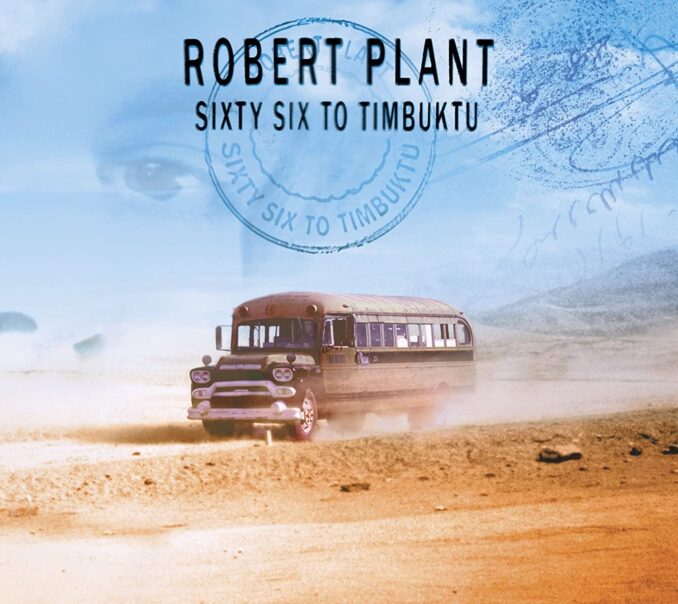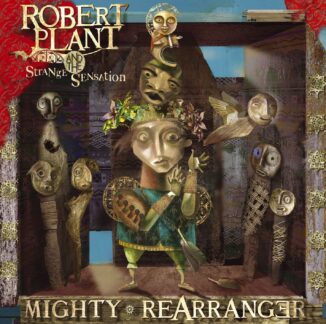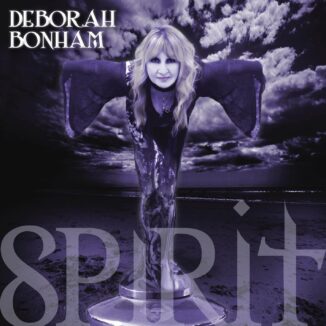
Summary
Mercury Records
Release date: November 3, 2003
Overall Rating: A for Led Zeppelin/Robert Plant fanatics, B for the average music fan
User Review
( votes)There may have never been another voice or front man for a band that has ever personified Rock ‘n’ Roll more than Robert Plant. Heavy Metal fans of today, yesterday, and the future owe nothing but gratitude to Mr. Plant and his mates from Led Zeppelin for laying the Hard Rock foundation on the music industry. Led Zeppelin Hard Rock, after adding a few key modifications to the sound here and there, eventually led to the genesis of Heavy Metal, as we know it, back in 1980. Looking through the history books, it’s actually poetically ironic that Heavy Metal was born in the same year as the break up of Led Zeppelin – the band that kept the music industry’s proverbial doors ajar to the notion that a powerful market existed for a Heavy Rock sound even during the flower child and disco generations. In retrospect, it was almost a “circle of life” kind of thing whereby Plant and company handed over the reigns to their British cohorts from Black Sabbath and Judas Priest (to name a few) to continue forging ahead on the Hard Rock musical journey, when they stepped aside upon the calamitous death of John Bonham.
Plant eventually re-entered the music circle, and has since written numerous quality albums that have consistently exemplified his musical pioneering and penchant for providing refreshingly original compositions. Plant, over his solo years, has seldom revisited an aggressive stylistic stance, but like a wolf unable to control his urge to howl when the full moon rises, we all surely know Plant’s intrinsic desire to ROCK and to entertain continues to pump through his blood like a jackhammer.
So here we are at the end of 2003 – Plant approaching upwards of 40 years in the musical entertainment business – and the release of Sixty Six to Timbuktu: a compilation of Plant’s post-Led Zeppelin “greatest hits” and pre-Led Zeppelin rarities. The title of this album is particularly clever – not only does the title have a catchy flair to the tongue, it’s also factual! More specifically, the music within covers the span beginning with Plant first hitting the music scene in 1966 with his rendition of The Young Rascals “You Better Run,” to his last live performance of 2003 with “Win My Train Fare Home” at The Festival in the Desert in Sahara, Mali, near Timbuktu.
Disc one contains 14 of Plant’s post-Led Zeppelin greatest hits, the Honeydrippers “Sea of Love,” and 1 previously unreleased track called “Upside Down.” When hit after hit by Plant is laid on the same CD, the most striking revelation that becomes apparent is the diverse, if not eclectic, musical styles Plant has delved into over the years of his solo career. Plant shows his ability to be flexible and assimilate a variety of musical/rock ‘n’ roll styles successfully and tastefully. As a result, this “greatest hits” CD will be enjoyed and recognized by a vast cross-section of music fans from many walks of life.
Disc two contains 19 Plant rarities, including previously unreleased/UK-only released tracks, soundtrack songs, and songs from various tribute albums and special projects. Taking a step back, I remember when Led Zeppelin delivered the album Coda in 1982, and the buzz it created in the industry prior to its actual release…so many people were so excited because fresh Led Zeppelin material was going to be hitting the market at a time when their faithful had been relegated to the notion that the band permanently laid itself to rest upon Bonham’s demise. Coda was promoted before its release like all get-out, and the fan base enthusiasm fed upon itself – somewhat understandable since Led Zeppelin truly did very little wrong throughout their musical career – market enthusiasm even though the band hid nothing when truthfully conveying the fact that Coda was largely a compilation of previously unreleased songs written by the band, which essentially weren’t good enough to make any of their prior albums. Coda sold like hotcakes when it was initially released, but the market enthusiasm dissipated quickly as the fan base realized that they might have indeed been better off living the delusion that their Led Zeppelin heroes were incapable of writing average/below average material. To the defense of Coda, I know some diehard Led Zeppelin fans who may never listen to that album again…but consider it a vital component of their Led Zeppelin collection, and wouldn’t part with it for the world.
Disc two of Sixty Six to Timbuktu strikes me in a similar fashion to Coda. Some of the songs are great, like the acoustic song “Little Hands” and “Hey Jayne,” which features passing lyrics and a smooth, repetitive bass groove that methodically drives the song, but most of the songs are average or below average compared Plant’s “conventional” solo material and work with Led Zeppelin. Notably, along with a small handful of 1960s cover songs, several demo and one-off tracks on disc two were recorded with some pretty impressive talent such as: John Bonham (pre-Led Zeppelin), Dave Edmunds, Phil Collins, and blues legend Alexis Korner. Avid Plant fans will likely welcome this compilation with open arms because it indeed shows previously unexposed facets and eras of Plant that had been unavailable up to now. Listening to disc two basically makes the Plant 3-D picture four-dimensional. If anything, disc two further shows that Plant’s eclectic stylistic nature was not a phenomenon germane only to his post-Led Zeppelin work. Disc two, in fact, shows Plant has always been, is, and will continue to be one of the best vocalists/songwriters in the history of rock ‘n’ roll, capable of turning out successful songs regardless of the musical genre visited…and he definitely touches many of them!




Be the first to comment